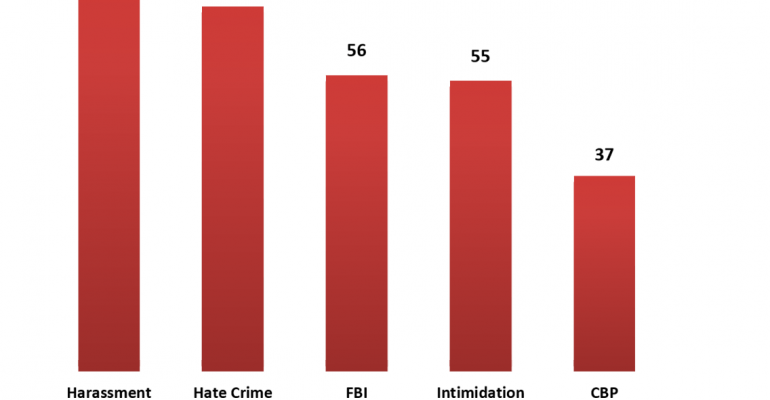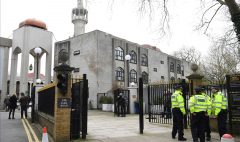CAIR report shows 2017 on track to becoming one of worst years ever for anti-Muslim hate crimes
July 22, 2017 2024-03-18 1:50CAIR report shows 2017 on track to becoming one of worst years ever for anti-Muslim hate crimes

CAIR report shows 2017 on track to becoming one of worst years ever for anti-Muslim hate crimes
The Council on American-Islamic Relations (CAIR), the nation’s largest Muslim civil rights and advocacy organization, today released an update on anti-Muslim incidents in the second quarter (April-June) of 2017. CAIR’s quarterly report indicates that the number of hate crimes in the first half of 2017 spiked 91 percent compared to the same period in 2016, which was the worst year for such anti-Muslim incidents since the civil rights organization began its current documenting system in 2013.
The number of bias incidents in 2017 also increased by 24 percent compared to the first half of 2016. [NOTE: Bias incidents are defined as cases in which there was an identifiable element of religious discrimination. Hate crimes are criminal offenses against persons or property, or incidents that can be charged as such under relevant state or federal statute.]
“The presidential election campaign and the Trump administration have tapped into a seam of bigotry and hate that has resulted in the targeting of American Muslims and other minority groups,” said Zainab Arain, coordinator in CAIR’s Department to Monitor and Combat Islamophobia. “If acts of bias impacting the American Muslim community continue as they have been, 2017 could be one of the worst years ever for such incidents.”
The most frequent type of incidents documented by CAIR in the second quarter of 2017 were harassment, defined as a non-violent or non-threatening incident. The second most common type of bias incidents were hate crimes, and have involved physical violence or property damage. Episodes in which the complainant was questioned by the FBI or otherwise appears to have inappropriately targeted by the agency are the third most common.
The most prevalent trigger of anti-Muslim bias incidents in 2017 remains the victim’s ethnicity or national origin, accounting for 32 percent of the total. Twenty percent of incidents occurred because of an individual being perceived as Muslim. A Muslim woman’s headscarf was a trigger in 15 percent of incidents.
The report dataset is drawn primarily from the intakes CAIR conducts each year. With each case, civil rights and legal staff seek to ensure the highest possible level of accuracy. CAIR recently launched an app to share critical “know your rights” information and simplify the process to report hate crimes and bias incidents and is urging Muslims to download the app and utilize this resource to stay informed and empowered.
CAIR is America’s largest Muslim civil liberties and advocacy organization. Its mission is to enhance the understanding of Islam, encourage dialogue, protect civil liberties, empower American Muslims, and build coalitions that promote justice and mutual understanding.
READ the Full CAIR Quarterly Report on American Muslim Civil Rights here.








